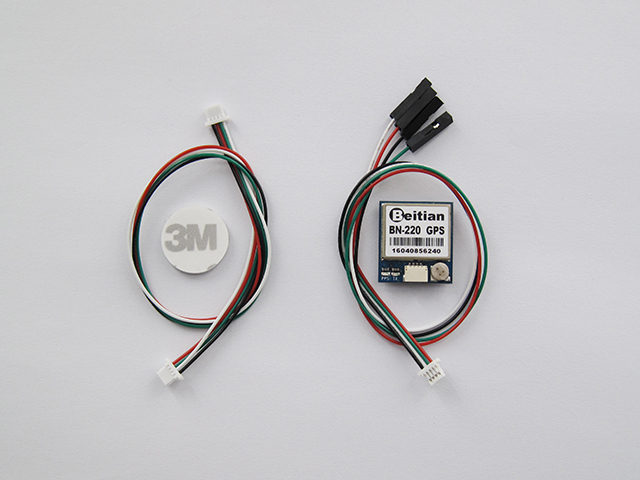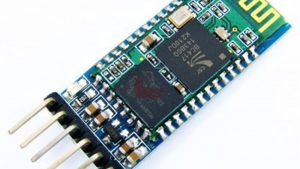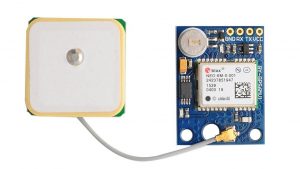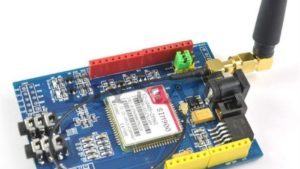Description
Dimension : 22mm*20mm*6mm
Module Weight : 5.3g
Connector : 1.00mm spacing between the 4pins patch seat
Specification:
Electrical Characteristics
Chipset : u-blox M8030-KT
Receiving Format : GPS,GLONASS,Galileo,BeiDou,QZSS and SBAS
Frequency : GPS L1,GLONASS L1,BeiDou B1,SBAS L1,Galileo E1
Channels : 72 Searching ChannelSensitivity:
Tracking : -167dBm
Reacquisition : -160dBm
Cold start : -148dBm
Hot start : -156dBmAccuracy:
Position Horizontal : 2.0 m CEP 2D RMS SBAS Enable (Typical Open Sky)
Velocity : 0.1m/sec 95% (SA off)
Timing : 1us synchronized to GPS timeAcquisition Time:
Cold Start : 26s
Warm start : 25s
Hot start : 1sData and Update Rate:
Support Rate : 4800bps to 921600bps,Default 9600bps
Data Level : TTL or RS-232,Default TTL level
Data Protocol : NMEA-0183 or UBX, Default NMEA-0183
Single GNSS : 1Hz-18Hz
Concurrent GNSS : 1Hz-10Hz,Default 1HzOperational Limits:
Altitude : 50,000m Max
Velocity : 515m/s Max
Acceleration : Less than 4gPower consumption:
VCC : DC Voltage 3.0V-5.5V,Typical: 5.0V
Current : Capture 50mA/5.0V
Operating temp : -40 °C ~ +85°C
Storage Temp : -40°C ~ +105°CWiring:
GND,TX output,RX input,VCC(3.0v-5.5v)
Getting started with the 3.0 V-5.0 V level TTL, GNSS module, M8030, NEO-M8N GPS GLONASS dual module GPS antenna, built-in flash, BN-220
we’re going to look at how GPS can show us longitude and latitude coordinate of our current locations.
Hardware required
Connecting the Hardware
Installing a library: TinyGPS++
before uploading the sample sketch you need to have the TinyGPS++ library if not download it TinyGPSPlus0.95a
install the library by extracting that zipped file in the library folder as shown below

Upload the sample sketch
#include <TinyGPS++.h>
#include <SoftwareSerial.h>
static const uint32_t GPSBaud = 9600;
TinyGPSPlus gps;
float Long,Lat;
void setup() {
Serial.begin(9600); // put your setup code here, to run once:
}
void loop() {
// put your main code here, to run repeatedly:
get_gps_data();
}
void get_gps_data(){
while (Serial.available() > 0){
gps.encode(Serial.read());
if (gps.location.isUpdated()){
Lat=gps.location.lat();
Long=gps.location.lng();
Serial.println(gps.location.lat());
Serial.println(gps.location.lng());}}}
Before to upload the program , Tx and Rx of arduino and GPS must be disconnected then Upload the program and open up the serial monitor from the Arduino IDE. Remember to select 9600 baud. you can now see the coordinates (Longitude ,Latitude) of the place you are.








